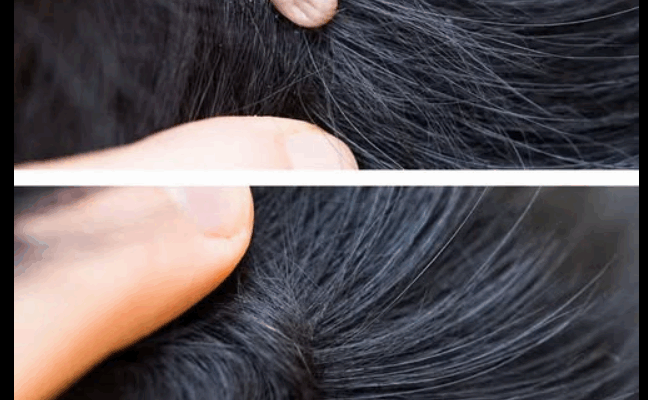If you’ve noticed “HT7” mentioned in connection with your child’s hair or scalp, it’s important to know that this term is not actually related to hair or scalp health at all. HT7 is the abbreviation for an acupuncture point known as Shenmen, which means “Spirit Gate” in Traditional Chinese Medicine (TCM).
HT7 is located on the wrist, right at the crease on the pinky finger side. In TCM, it is used to address issues related to emotional well-being, including anxiety, insomnia, stress, and restlessness. Practitioners believe that stimulating this point can help calm the mind and improve sleep, among other benefits. However, HT7 has nothing to do with hair or scalp conditions, so if you’ve come across this term while searching for scalp-related information, it’s likely a misunderstanding or a mix-up.
If your child is experiencing something unusual on their scalp or in their hair, it’s much more likely to be one of these common scalp conditions:
✅ Cradle Cap (Seborrheic Dermatitis): This condition often appears in infants, usually within the first few months of life. It presents as greasy, yellow or brown scales on the scalp and sometimes behind the ears. While it may look concerning, it’s generally harmless and often resolves on its own over time. Regular gentle washing and using a soft brush can help loosen the flakes.
✅ Dandruff:
In older children and teens, dandruff can cause white flakes and itching. It often results from a combination of dry skin, sensitivity to hair products, or an overgrowth of a yeast-like fungus. Special dandruff shampoos can help control this.
✅ Folliculitis:
This is an inflammation of the hair follicles, sometimes caused by bacteria, irritation from tight hairstyles, or certain hair products. It may appear as small red bumps or pustules, and in some cases, it can be itchy or tender. Practicing gentle hair care and avoiding tight styles can help prevent it.
✅ Eczema (Atopic Dermatitis):
Eczema can affect the scalp, causing dry, itchy, and inflamed patches. It is often associated with allergies or sensitive skin and may require moisturizing treatments or medicated shampoos recommended by a doctor.
✅ Tinea Capitis (Scalp Ringworm):
Despite its name, this is a fungal infection rather than a worm. It causes round patches of hair loss, scaling, and sometimes black dots where hair has broken off at the scalp. It is contagious and requires prescription antifungal medication for proper treatment.
If your child is experiencing scalp issues, it’s always best to seek advice from a pediatrician or dermatologist rather than trying home remedies or alternative treatments without a clear diagnosis. A professional can examine the scalp, identify the condition accurately, and provide a safe and effective treatment plan.
In summary, while HT7 is an interesting and helpful point in acupuncture for emotional health, it is completely unrelated to scalp or hair concerns. Staying informed and consulting medical experts ensures your child receives the right care for a healthy scalp and hair.
